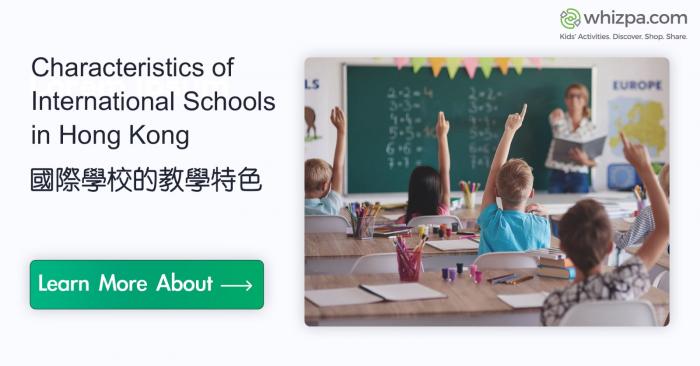
Characteristics of International Schools in Hong Kong
As the world continues to globalize and technology and artificial intelligence are replacing much of the workforce, the skillsets and talent required in the career market are no longer what they used to be. In addition to textbook knowledge, soft skills have become immensely critical. Hence, the demand for international schools is increasing today as parents want to place their children in a multicultural and holistic teaching environment where they are better prepared in every aspect to meet the challenges of the world ahead. So what kind of education are the international schools in Hong Kong offering?
Emphasis on holistic education
Holistic education, also known as whole-person education, is an approach that emphasizes students' emotional, social, ethical, and academic needs in an integrated learning format. Therefore, it is not only about transferring knowledge and skills but also about all aspects of development, from cognitive skills, arts and aesthetics appreciation, interpersonal skills, and emotion management to moral education. As a result, students have a better chance of gaining a balanced and comprehensive development, shaping them to be more well-rounded.
Inquiry-based and project-based learning
International schools advocate inquiry, discovery, and experiential learning, encouraging students to remain inquisitive and be bold in creativity. Students work on a project in a group and learn how to collectively complete a task as a team by solving problems. Teachers act as initiators, facilitators, and motivators, encouraging students to think more deeply, ask questions, seek help more proactively and think from multiple perspectives for problem-solving. Students have to take ownership of the learning process, and by actively participating in their education, they are able to discover their genuine interests and strengths and thus, self-confidence is built.
Internationally recognized curriculum
There are around 50 international schools in Hong Kong, with different national academic systems implemented in the junior year. The most common curricula for senior year are the International Baccalaureate(IB) Programme and the UK-based International General Certificate of Secondary Education (IGCSE), and Advanced Level (A-level). These well-acclaimed curricula have in common that they are mainly inquiry-based learning, with no emphasis on intensive training or focusing on examination. They encourage students to have a deeper understanding of a subject and develop rigorous ways of thinking as opposed to learning solely by memorization.
Multicultural environment and foreign language offering
With English as the primary language of instruction, international schools attract students from diverse ethnic and cultural backgrounds, creating a multicultural environment where students share their views and cultures, and learn to understand and respect others' differences. By immersing in a native English-speaking environment, students' English language skills will improve naturally and significantly. As a world citizen in the future, the student is expected to take one to two other foreign languages in addition to English. Choices are French, Spanish, Japanese and Chinese, depending on each international school's teaching resources and policy.
Small-class teaching
International schools value each student's uniqueness and different learning needs. Therefore, despite being in the same class, students with varying levels are put into smaller groups so that teachers can teach according to their abilities. To better cater for each student, schools usually limit the class size to less than 30 to maintain an appropriate teacher-student ratio to ensure each student receives sufficient attention and care.
Friendly teacher-student relationships
The international school culture promotes equality and respect for individuality. Teacher-student relationships can be as equal as friends, and teachers usually show respect to their students, valuing their individuality and being polite. This positive relationship and harmonious ambience create a welcoming classroom and facilitate a more open and lively discussion where effective teaching is achieved.
Encourage participation in extracurricular activities.
Based on the philosophy of holistic development, extracurricular activities are by no means less important than academic studies. Schools encourage active participation in sports, arts, dance, drama, debates, culinary and science, which enable students to explore their interests and talents in various ways. Under the guidance of a qualified coach/teacher, the well-acquired skillsets, besides the paper qualification, may become a significant edge for their future career life.
Despite the current wave of migration, competition for places in international schools remains fierce. However, it is vital that our children are well-educated and prepared for their future careers. Therefore, if the above teaching approach is suitable for the children, parents should consider sending them to international schools whenever they can afford it.
To know more, sign up for Whizpa's FREE webinar on Hong Kong International Schools NOW!
Further reading: eBook#34: Top 7 Holistic Approaches to a Healthy Child








